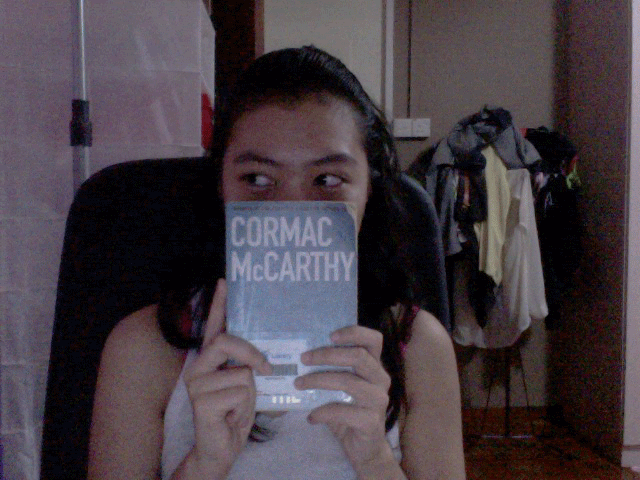the narrative plays around with types of grayness, that even the bleakest things have managed to exist in various levels, that there is not only one kind of monotone. dialogues without quotation marks to blend with the story, like an inanimate human being who blends into the background. they are reduced but not dry, filtered yet honest. at first the son's participation in the dialogues seems only to affirm what his father has to say, but along the story he begins to disclose his own opinions which, more often than not, contradict with his father's. pure and scared and little, the son always tries to urge his father to take with them most people that he meets along the way. another little boy around his age. a weak beggar-looking man. he cries and sobs and won't stop until his father tells him to. and he grows up witnessing all kinds of humans barred from humanity and all seas and skies and ashes deprived of colors.
the father is the only man he can cling himself to. the son has no choice but to trust him fully, and the man understands this, by continually convincing his son that they are going to survive and he is not doing the son, nor himself, any harm. "if you break little promises you'll break the big ones," the boy's ball of trust begins to unravel. the man tries to thread it back, intact: "i know. but i wont."
the images conjured by the book are not easy to forget, especially as they alternate with the disturbing dreams the son often has. but they are written beautifully: brutality--and flames that can be not only a source of light and life, but also a warm death.
the road focuses on the relentless journey the father and the son have to go through, as background information is very scarcely provided. but in the beginning the book is supplied with a few glimpses to the previous life, when there are more souls in the family (eg this conversation between the mother and the father):
No, I'm speaking the truth. Sooner or later they will catch us and they will kill us. They will rape me. They'll rape him. They are going to rape us and kill us and eat us and you won't face it. You'd rather wait for it to happen.But I cant. I cant. She sat there smoking a slender length of dried grapevine as if it were some rare cheroot. Holding it with a certain elegance, her other hand across her knees where she'd drawn them up. We used to talk about death, she said. We dont anymore. Why is that?
I dont know.
It's because it's here. There's nothing left to talk about.
I wouldnt leave you.
I dont care. It's meaningless. You can think of me as a faithless slut if you like. I've taken a new lover. He can give me what you cannot.
Death is not a lover.
Oh yes he is.

it's too early to draw this conclusion based only on two books that i have read (this and caribou island), but if i may suggest, don't get any hopes up on books with immediate, cold dialogues that do away without an employment of quotation marks. they are going downhill, always. they slow down, perhaps, look back, at times, but they never climb back to a better state, or their initial points.

No comments:
Post a Comment